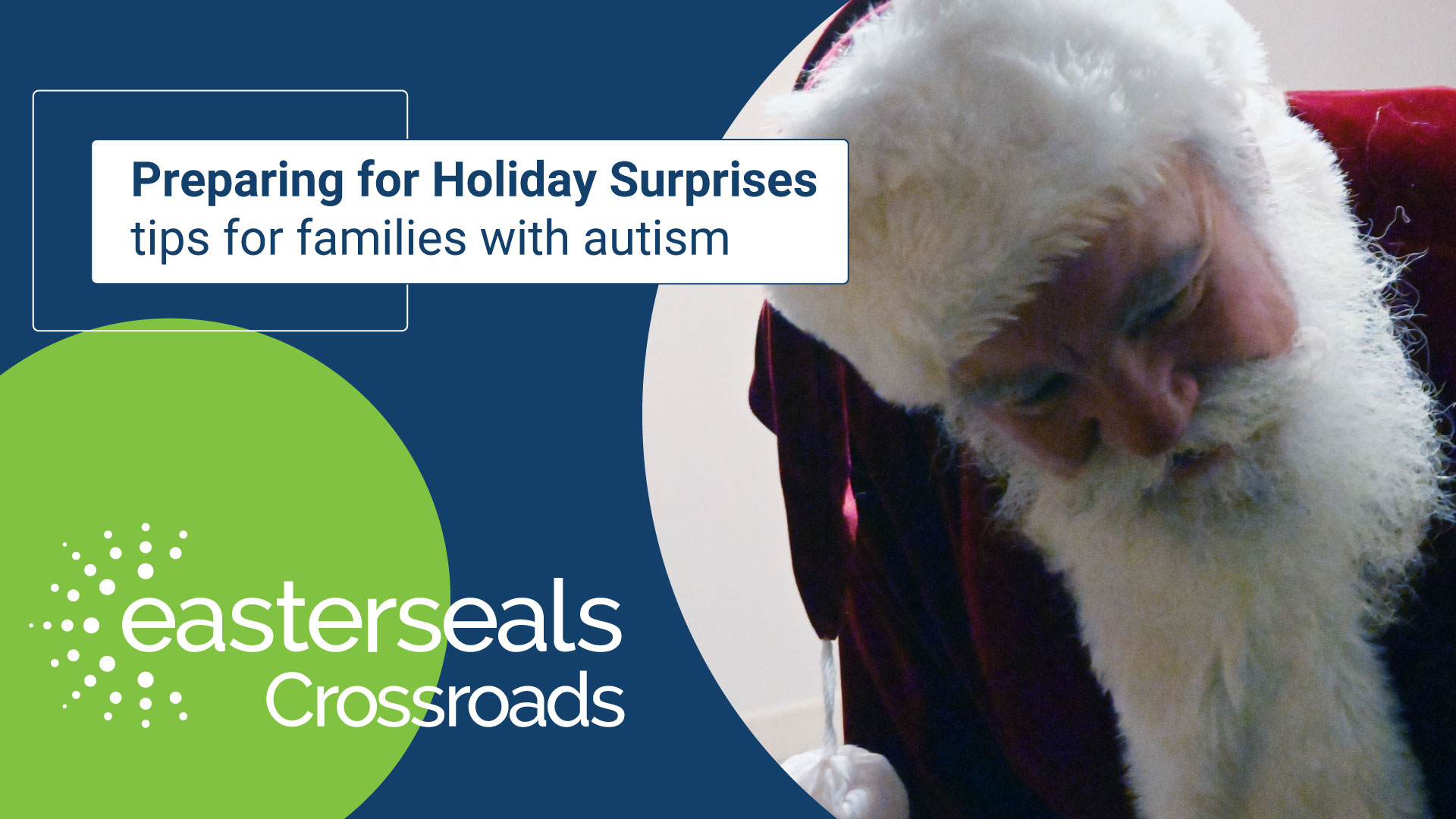
submitted by Karrie Veteto, Director of Autism & Behavior Services
As parents/caregivers, the holiday season can be a particularly crazy time of the year. With all of the planning and preparing for holiday events; keeping up with schedule changes; shopping; the ever-growing to-do list; and particularly the mental to-do list – it seems never-ending. Additional challenges are presented when you have a child on the autism spectrum. Individuals with autism often have difficulty with changes in routine. Transitioning between activities can be a challenge; new environments can be overwhelming; social events and interactions can be stressful. This sounds like the holidays in a nutshell!
Here are a few tips on how to help your child – and family – have a calm and relaxed holiday season when faced with these experiences.
Changes in Routines and Schedules
- Try to give advance notice about changes in routine/ schedule. You could use a visual on the calendar or maybe just verbal reminders. You might even highlight an aspect of the event your child is likely to be most interested in, such as “On Friday we are going to Grandma’s and she’s making your favorite dessert!”
- Don’t plan for too many things. You know what your child can handle well. If suggested plans are likely to be too much, then plan accordingly. It’s OK to say no.
Visiting New or less Familiar Locations
- Consider bringing familiar items with your child and potentially preferred foods if you are concerned that he/she won’t like the options provided.
- Identify a “calm” space for your child where he/she may be able to escape from the chaos of the event.
- Provide your child with a visual to indicate how long you plan to be there. This may be a timer, a visual schedule or perhaps an estimated departure time. Be certain to stick to what you say. We all can often tolerate stressful or less desired activities a little more easily when we know that eventually we get to leave and go home.
Interacting Socially, Managing Gifts and Visiting Santa
- Respect your child’s limits. If your child doesn’t like physical touch, don’t encourage giving hugs. Maybe a fist-bump or high-five works instead of sitting on Santa’s lap.
- Don’t talk about your children in front of them. If you want to explain your child’s behavior in a situation, try to talk with them. “It’s really loud in here, isn’t it Johnny?” “Timmy doesn’t like too many hugs, right buddy?” None of us like to be talked about. Even it appears that a child isn’t listening, there is a good chance that he/she is listening.
- Kids notoriously say it like it is. If a kid receives a gift that they don’t like or already have, they may say so. This can be super embarrassing as a parent, but it shouldn’t be. It might help to talk through this with your child ahead of time. Many times, our kids on the spectrum need a little extra time to process information. You can always say something like “I bet she will like it when we open it up at home.”
You know your child best. Make a plan that best suits your child’s needs. This may mean shortening visits or reducing the number of places that you go in a day. Be sure to give them time and encourage others to do so too. They may need that extra time to settle-in, get comfortable, respond to others – all of this is okay. Following these simple tips may help your family manage the joys and the bumps of the season!
For toy/activity ideas this holiday, watch Karrie’s recent media appearance for suggestions.



